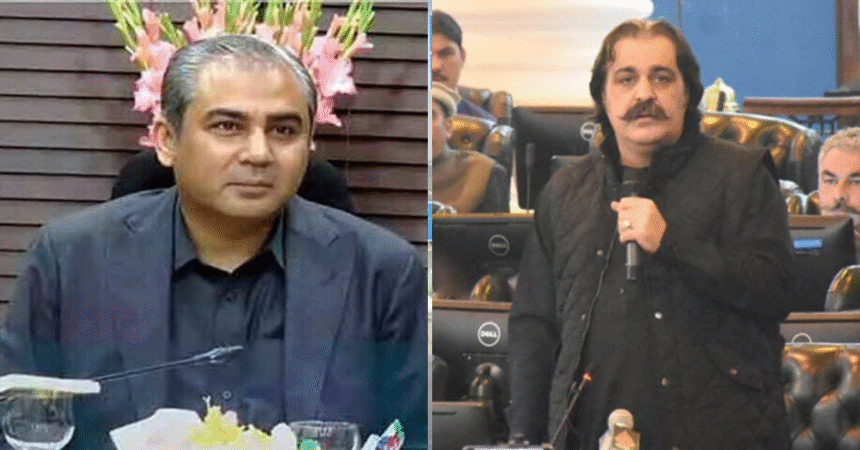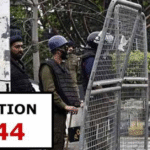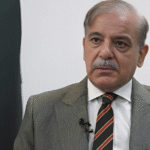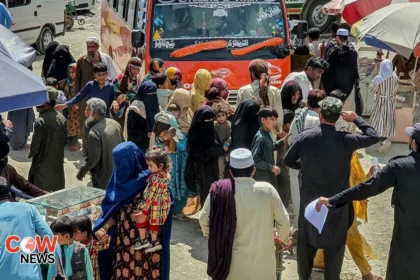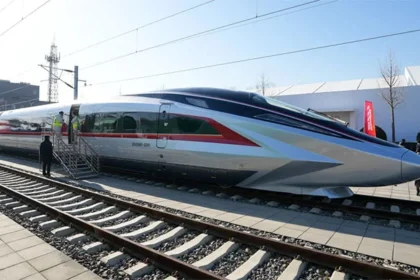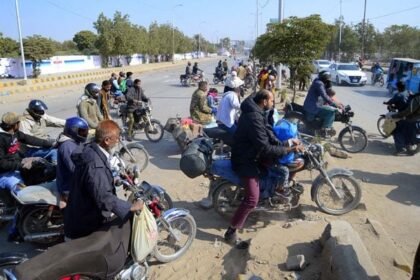Islamabad – The capital has been engulfed in turmoil following protests led by the Pakistan Tehreek-e-Insaf (PTI) party, marking a significant moment in Pakistan’s ongoing political saga. As the demonstrations escalated, Interior Minister Syed Mohsin Naqvi publicly condemned Khyber Pakhtunkhwa Chief Minister Ali Amin Gandapur, holding him responsible for the unrest and its repercussions. The chaos, which has raised serious security concerns, particularly with the arrest of over 120 Afghan nationals among the protestors, has put immense pressure on the government and law enforcement agencies.
- Background of the Protests
- Government Response to the Protests
- Arrests and Security Concerns
- Implications for the Upcoming SCO Summit
- The PTI’s Position and Continued Mobilization
- The Role of Civil Society and Political Analysts
- A Cycle of Violence and the Need for Dialogue
- Future Prospects and the Road Ahead
- The Importance of Leadership and Responsibility
Background of the Protests
The PTI protests in Islamabad were fueled by a combination of political grievances, including accusations of government mismanagement, allegations of corruption, and a perceived threat to democratic processes. Supporters of the party claim they are fighting for the rights of the people, demanding accountability and transparency from the ruling coalition. The protests have garnered significant attention, not just for their scale but also for the charged atmosphere surrounding them.
As the demonstrations began, a mixture of PTI loyalists and other civil society groups converged on the capital, chanting slogans and demanding the government’s resignation. Initially peaceful, the protests took a violent turn as tensions between demonstrators and law enforcement escalated, resulting in injuries and property damage.
Government Response to the Protests
The government’s response to the protests has been firm. Naqvi, addressing the media from D-Chowk in Islamabad, made it clear that the administration would not tolerate any disruption, particularly with the upcoming Shanghai Cooperation Organization (SCO) summit. He stated, “We cannot allow the PTI to sabotage an international event of such significance. We advised them to postpone their protests for the sake of peace, but they chose chaos instead.”
In light of the situation, Naqvi announced that additional police forces would be deployed to maintain order and prevent any further escalation. The minister expressed his dismay at the injuries sustained by law enforcement, stating that “over 85 police personnel were injured due to the violence initiated by the protestors.” This assertion highlights the government’s commitment to ensuring the safety of both the citizens and the police.
Arrests and Security Concerns
The most alarming development amidst the protests was the arrest of more than 120 Afghan nationals. Minister Naqvi referred to their involvement as a “grave concern,” indicating that it could signify a broader issue involving foreign elements in domestic unrest. The arrest of foreign nationals has raised questions about national security and the potential implications for Pakistan’s international relations.
“It is alarming to see Afghan nationals involved in protests that can destabilize our nation. We must scrutinize the motives behind their participation and address any security risks they pose,” Naqvi emphasized. The presence of these individuals in the protests has drawn attention to the challenges Pakistan faces concerning border management and the potential for unrest spilling over from regional conflicts.
Implications for the Upcoming SCO Summit
With the SCO summit scheduled to take place in just days, the government’s primary focus has shifted towards maintaining a stable environment. The summit, which will host various foreign delegates, is crucial for Pakistan’s diplomatic standing and economic interests. Any disruption could not only harm Pakistan’s reputation but also deter potential foreign investment and cooperation.
Naqvi’s comments underscore the government’s commitment to ensuring that international guests can attend the summit without fear of violence or disruption. “We will do everything in our power to maintain law and order in the capital,” he stated. The implications of failing to secure a peaceful environment could reverberate across various sectors, further complicating Pakistan’s already challenging political landscape.
The PTI’s Position and Continued Mobilization
In response to the government’s crackdown, PTI leadership has vowed to continue their protests, portraying them as a necessary step in the fight for democracy and justice. “We will not be silenced by threats or violence,” said a PTI spokesperson. The party maintains that their actions are justified, as they seek to hold the government accountable for its actions and policies.
PTI supporters argue that their protests are not only about their political agenda but also reflect a broader sentiment among the public frustrated with governance. As the protests gained momentum, social media became a vital tool for mobilization, with hashtags related to the protests trending on various platforms. The narrative surrounding the protests has polarized opinions, leading to fierce debates online.
Supporters of the PTI have used social media to galvanize support, encouraging people to join their cause, while opponents have called for an end to the disruptions. This digital battleground has amplified the stakes of the protests, as both sides seek to sway public opinion in their favor.
The Role of Civil Society and Political Analysts
Civil society organizations and political analysts have voiced their concerns regarding the implications of the ongoing unrest. Many fear that the involvement of foreign nationals could complicate the situation further, potentially inviting international scrutiny. Analysts have noted that the current climate mirrors previous instances of unrest in Pakistan, where political tensions escalated into widespread violence.
“The situation is precarious. Both the government and the PTI must exercise caution and prioritize dialogue over confrontation,” remarked a political analyst. “The stakes are high, and both sides risk further alienating the public if they continue down this path of escalation.”
Moreover, the protests have raised questions about the state of democracy in Pakistan. Observers have pointed out that the government’s heavy-handed approach could backfire, leading to greater public dissent and further instability. The delicate balance between maintaining order and respecting citizens’ rights to protest is a challenge that the government must navigate carefully.
A Cycle of Violence and the Need for Dialogue
As clashes between demonstrators and law enforcement continue, fears of a cycle of violence loom large. Reports indicate that the protests have resulted in not just physical injuries but also emotional scars for many involved. The confrontations have sparked outrage among citizens who feel caught in the crossfire of political conflicts.
The need for dialogue has never been more pressing. Various stakeholders, including civil society, political parties, and international observers, have emphasized the importance of finding common ground. “Dialogue is essential. Both sides need to come to the table and discuss their grievances constructively,” a civil rights advocate stated.
The political landscape in Pakistan is fraught with challenges, and the current unrest only adds to the complexity. With both sides entrenched in their positions, the prospect of resolution appears distant. However, the potential for dialogue remains a beacon of hope in an otherwise turbulent scenario.
Future Prospects and the Road Ahead
As the situation in Islamabad continues to unfold, the focus will inevitably shift to the government’s response and the PTI’s next moves. The coming days are crucial, especially with the SCO summit approaching. Any further escalation could not only complicate domestic politics but also hinder Pakistan’s international relations.
Political analysts speculate on the potential outcomes of the protests. Some believe that a negotiated settlement could emerge if both sides show willingness to compromise. Others, however, fear that a hardline approach may lead to increased polarization and further violence.
The role of media in shaping public perception cannot be underestimated either. As news outlets cover the ongoing protests, they will play a significant role in informing the public and influencing opinions. The narratives constructed during this period will likely have lasting impacts on Pakistan’s political landscape.
The Importance of Leadership and Responsibility
At the heart of the current unrest lies a significant question: what does responsible leadership look like in times of crisis? Both the government and the PTI must reflect on their roles in the unfolding drama. The responsibility to ensure that dissent does not devolve into violence falls on all parties involved.
Leaders are tasked with not only addressing the immediate concerns of their supporters but also fostering a sense of unity and understanding among the broader populace. The potential for reconciliation exists, but it requires a commitment to dialogue and a recognition of the shared aspirations of the Pakistani people.
In summary, the protests in Islamabad have exposed deep-seated grievances and raised critical questions about governance, accountability, and national unity. As tensions continue to simmer, the imperative for responsible leadership becomes ever more pressing. The road ahead is fraught with challenges, but with the right approach, there remains hope for a peaceful resolution.
#IslamabadProtests #PTI #GovernmentResponse #SecurityConcerns #SCO2023

